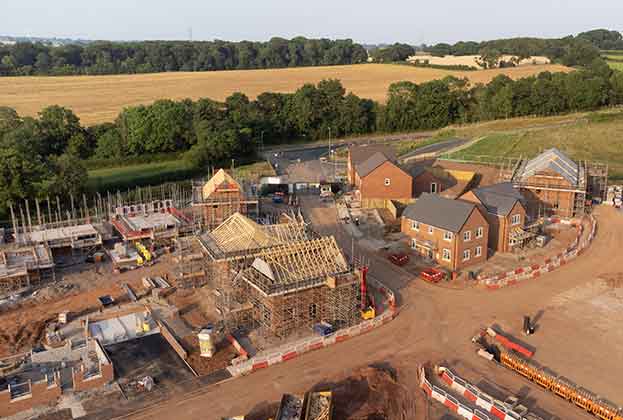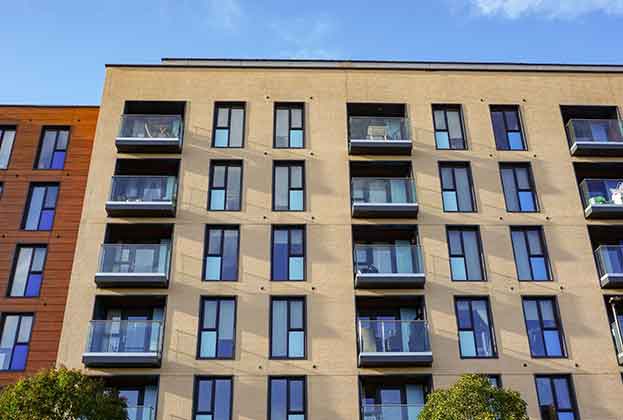In August 2023, the Mayor of London, along with key stakeholders in the housing sector, reconvened the London Housing Delivery Taskforce (LHDT). The group includes leaders from London councils, developers and housing associations, unions, construction bodies, community groups and industry organisations.
The LHDT was reconvened under growing pressures in the industry to deliver high-quality housing to meet the burgeoning demand for homes across the capital. Research in August 2023, at the time of the group’s re-emergence, suggested that approximately one in 50 Londoners are homeless and are now living in temporary accommodation. Meanwhile research prepared by Savills and the London School of Economics on behalf of London Councils showed, as of July 2023, a 41 per cent reduction in the number of rental properties advertised in the capital following the Covid-19 pandemic.
The November 2023 Joint Position Statement, issued by the LHDT, formed a collective written paper which sought to identify the challenges affecting homebuilding in London currently, and to subsequently prepare proposals to be taken forward by the Greater London Authority, with wider recommendations to be passed to central Government.
The LHDT identified several key challenges facing housing delivery in the capital, including:
- Macro-economic conditions – noting current inflation and interest rates and construction costs (which albeit stabilised, are still high), resulting in higher rates of contractor insolvencies.
- Lack of central Government investment – a lack of sufficient investment, particularly for affordable grant funding, is seen to be limiting potential counter-cyclical investment, along with limited investment in existing stock.
- Policy uncertainty – including the introduction of the Infrastructure Levy, future rent settlement and lack of clarity on the second staircase requirement from central Government.
- Funding rigidity – “stringent rules” from central Government impacting the timely and successful deployment of funding (including the Affordable Homes Programme settlement and Right to Buy receipts).
- Planning – citing funding cuts to local government, and the implications for recruiting and retaining skilled planning officers and subsequent resourcing.
The above challenges, compounded by longstanding issues such as increased land costs in the capital compared to other areas of the UK, were seen by the LHDT as “holding London back as a city and pushing out families that no longer view the capital as an affordable place to live”.
In order to overcome viability challenges, address delays in the planning system and unlock land supply further across the capital, the taskforce’s paper highlighted several initiatives which City Hall will incorporate. This includes (but is not limited to):
- Undertaking work to better understand the application of London Plan Guidance in the context of second staircase requirements.
- Consulting with councils and industry members to effectively implement design policy and guidance in support of high-quality homes and overall housing delivery, recognising the fundamental need for stakeholders to consider the development plan as a whole, avoiding mechanistic application of guidance.
- Collaborating with councils to create a live Strategic Housing Land Availability Assessment process, allowing for a new SHLAA methodology to be developed.
- Launching a new local authority acquisitions programme, to allow local authorities to purchase homes from leaseholders, developers or other providers who are looking to sell newly built homes for conversion to social housing.
- Exploring new offers for small and medium enterprises including the potential for new City Hall debt funds and enhancing the existing Small Sites Small Builders programme.
The November 2023 statement was followed by a letter from the Mayor of London to the Secretary of State for Housing, Communities and Local Government. The letter called for an immediate injection of £2.2 billion for affordable housing, in order to boost genuinely affordable homebuilding from levels currently expected to be delivered as part of the 2021-26 Affordable Homes Programme to 35,000 homes. The Mayor continued his calls for a long-term funding settlement to meet London’s independently-assessed affordable housing investment needs, quoted as nearing c.£4.9 billion annually, warning that failure to act by central Government would risk housebuilding “grinding to a halt” across the country, and strangling the progress made in London.
It remains to be seen whether central Government will consider and implement the recommendations raised by the LHDT in their statement. What is clear, however, is that the challenges facing the housebuilding sector are not unique to London, and a collaborative, joined-up approach at all levels is required in order to ensure housing delivery can be maximised for the benefit of all.
Further information
Contact Jack Conroy or Matt Richards
.jpg)
.jpg)

.jpg)


.jpg)
.jpg)

.jpg)
(1).jpg)